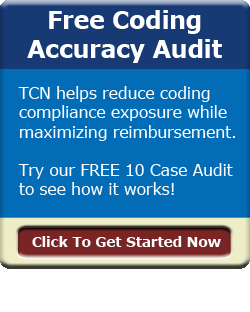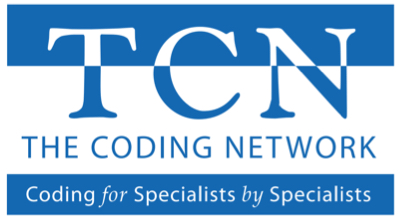Ambulance & Emergency Medicine Coding
No doubt about it; ambulance coding is a specialty unto itself. It requires a totally unique set of codes that are not used for physicians’ or hospitals’ services. There are special sets of:
- 12 Level of service codes
- 11 Origin and destination modifiers
- 5 Signature requirement exceptions
- 31 Advanced Life Support condition codes
- 3 Advanced Life Support non-emergency condition codes
- 11 Basic Life Support non-traumatic condition codes
- 8 Basic Life Support traumatic condition codes
- 10 Basic Life Support non-emergency condition codes
- 11 Transportation indicator codes
- 8 Special situation modifiers
The differences between medical and ambulance coding are profound. Not only are the codes and documentation requirements unique, but facts that physician and hospital coders take for granted just don’t apply in the world of emergency medical services coding. For example, condition codes must be used because it is beyond the scope of an EMS license to render a diagnosis; only a physician can diagnose. Plus, the actual condition of the patient can be vastly different than the one actually used to dispatch the ambulance, and there are rules covering which condition must appear on the claim. Or, the patient may have died between dispatch and the ambulance arrival. All of these factors and many, many more must be considered by the ambulance coder in order to produce an accurate and compliant claim.
Many municipalities contract with private ambulance and patient transport companies. Medicare and the OIG are increasing oversight activities in the ambulance billing area due to the unique requirements for ambulance coding. Medicare and Medicaid spend billions on emergency medical services, and ambulance coding is a reappearing item on the OIG’s annual worklist. The scrutiny will only get more intense as more of the postwar “baby boomers” reach Medicare age.
Ambulance coding is vastly different from the medical specialties that utilize evaluation and management codes to identify a provider’s services.
The Coding Network’s Ambulance Coding Division provides state-of the art coding for ambulance and EMS services through its pool of Certified Ambulance Coder® (CAC) specialists. TCN ambulance coders are experts and certified by the National Academy of Ambulance Coding to assure that your claims are accurate and compliant with the Federal and state rules and regulations. Claim accuracy will optimize revenues and reduce your billing costs by minimizing claim denials.
TCN’s Ambulance Coding Background:
- Directed by a nationally known ambulance coding expert.
- Decades of experience in remote coding.
- An entire network of certified ambulance coders.
- Experience in coding for clients in 49 states.
The Ambulance Coding Need:
- Well trained ambulance coders are difficult to find, expensive to recruit, and their ongoing training can be quite costly.
- Few certified coders have the extensive ambulance coding experience and specialty knowledge possessed by The Coding Network’s ambulance coding experts.
- With OIG and RAC auditors targeting ambulance services, there is no such thing as “a second chance” after submitting Medicare and insurance claims. They must be accurate the first time. The legal and financial risks of upcoding or undervaluation are enormous.
- Ambulance coding is unique; ambulance coders are not fungible with physician or hospital coders.
- Coder turnover creates revenue cycle peaks-and-valleys.
- Most ambulance services and municipalities are too small to economically justify a full time certified coder. Many billing companies do not have certified and experienced ambulance coders available to staff-up for new billing contracts. Coders are expensive fixed-cost overhead items who often fill their highly-paid time with other less-challenging non-coding tasks.
TCN’s Ambulance Coding Solution:
- The Coding Networks ambulance coders are “black belts” in ambulance and EMS coding.
- 2-to-3 business day coding turnaround via fax or the Internet. We can dial into your electronic medical record system.
- We can send our codes to you or directly to your billing company.
- HIPAA compliance and no documents are sent off-shore.
- Our per-case pricing model is inexpensive and our group of ambulance coders stabilizes cash flow. You only pay for what you need.
- Never worry about revenue cycle “whiplash” caused by absences, vacations, family leaves, etc.
- No monthly minimum gives you total control.
- Volume-driven pricing makes us an ideal ongoing solution for ambulance and EMS services of all sizes.
- Identification and feedback of documentation deficiencies at no additional cost.
- A practical and cost-effective solution for your ambulance coding needs.
Services
- Temporary ambulance coding to cover vacations, medical leaves and employee vacancies due to staff turnover.
- Backlog coding resolution services.
- Coding accuracy and compliance audits with user friendly and educational report formats.
- Coding “helpline” services.
- OIG and RAC audit defense.

Latest Blog Posts:
Need Professional Medical Coding Assistance: Why Using Your Doctors To Code Is Not Free
In today’s fast-paced healthcare environment, efficiency and accuracy are non-negotiable. Every medical practice, hospital, and healthcare system strives to optimize revenue, ensure compliance, and deliver exceptional patient care. One area that often flies under the [...]
Medical Coding Compliance: The Good, the Bad, and the Ugly
In today's complex healthcare landscape, maintaining coding compliance is more crucial than ever. Recent developments from the Department of Justice (DOJ), including the launch of the Corporate Whistleblower Awards Pilot Program (CWAPP), have further emphasized [...]
The DOJ’s New Whistleblower Program: A Vital Step for Medical Coding Compliance
On August 1, 2024, the U.S. Department of Justice (DOJ) launched its Corporate Whistleblower Awards Pilot Program. This initiative is a significant development in the DOJ's efforts to uncover corporate misconduct, particularly in areas not [...]
Coding Compliance Audits: Uncovering Deficiencies and Solutions
In an era where healthcare systems are intricately tied to digital platforms, meticulous coding accuracy cannot be a mere afterthought; it is an absolute necessity. Often overlooked, coding errors are the silent killers of compliance [...]




